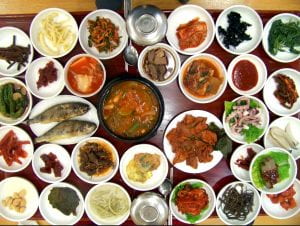Case Study: South Korea
A Case Study of South Korea’s successful management of food waste
South Korea has the highest rate of food waste recycling in the world. Today, 95% of their food waste is recycled, which is a remarkable increase from just 2% in 1995. Their success in reducing food waste has brought about significant benefits to the country. For instance, the South Korean government had saved 600 thousand dollars a day since, which was previously spent on food waste disposal. Being a successful example in the reduction of food waste, they are a good example for Singapore to emulate and reflect upon.
The Method
Cold Turkey: In 2005, a ban was passed for food waste being sent to landfills. This forced the country to deal with food waste through other approaches. The newly imposed responsibility on their food waste had the residents more aware of the food waste they generate, forcing them to reduce and find ways to recycle them.
Give it a New Purpose: Innovative technologies have since sprouted within the country on dealing with food waste. For instance, a company has come up with the method of using black soldier fly larvae to break down the food waste sent to their plant. The larvae are raised on the waste for two weeks, before being processed alongside their excrement into various useful substances, such as fertilizer and animal feed. Not a single component of the process is being trashed. The government has too dished out 185.1 billion won on building public facilities to recycle food waste.
Make Wasting Food Expensive: However, recycling food itself does not ensure that the actual output of food waste will be reduced. In 2013, automated bins that weigh and bill residents accordingly on their disposed of food waste via their ID cards were put in place, effectively tying wasted food to monetary units. The food waste billing was raised by 30% in early 2016 to further make residents feel the pinch. For the sake of easing financial burden, some families have turned to composting their own food waste at home with a home composting machine.

RFID-operated bins placed in neighbourhoods weigh and bill residents’ food waste by weight. (source: World Economic Forum)
Challenges
Un-pleasantries: Disposed food items can be unpleasant stuff to deal with. For instance, the decomposing food produces a pungent stench that if not contained properly, it can cause discomfort for those in the vicinity. This is so the case for the smart bins used for billing food waste, as residents have lodged grievances over the bins emanating a bad smell during summer. The solution that has been applied by the district government is to use ginkgo leaves to neutralize the smell.
Culture shock: Another issue is culture shock amongst both old and new residents of the country. The mandating of reducing food waste challenges the dining culture in South Korea. For instance, restaurants in Korea often serve ‘Banchan’, small side dishes consumed alongside the main courses. Banchan is served in a large variety and of generous portions. These side dishes are often left unfinished or untouched, contributing significantly to the food waste in the country. Residents have since adapted by bringing their own takeaway boxes to pack up the unfinished banchan. New immigrant residents will have to get used to the process of handling and disposing of food waste, as well as knowing what to and not to dispose of into food waste bins. An individual can face a fine of up to 1 million won should they violate any of the strict laws governing food waste disposal.
Cheaters: Then, there are those who attempt to circumvent the law. There have been instances of households mixing in their food waste with general waste or flushing their food waste down the toilet and end up choking it. For such issues, public education would play an important role in correcting these problems that arise from the passing of stringent food waste laws.
Takeaways for Singapore
Our local efforts are starkly lax in contrast to that of South Korea’s to manage food waste. A 17% recycling rate compared to a 95% recycling rate of food waste highlights Singapore’s need to step up in managing her output of food waste. Will South Korea’s methods work in Singapore, then?

